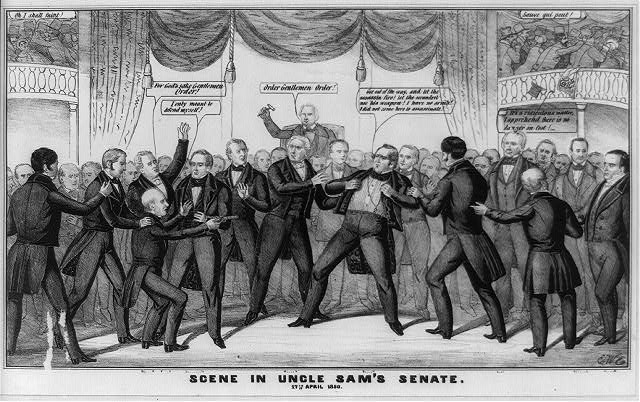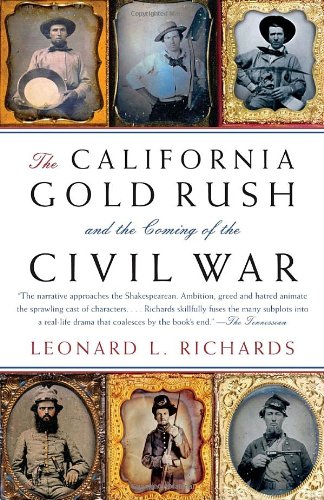I deliberately keep this blog away from politics. I’m told that writing about a hot-button issue is a sure way to increase blog traffic, but I’m not sure those are the readers I want to reach.
I am bemused, however, as I do historical research, how little things have changed over the years. We think our politicians today are so polarized and so unable to compromise that they can do nothing to try to resolve the major controversies of our day. Of course, the first “do nothing” Congress was the Eightieth Congress, so named by President Harry S. Truman in 1948.
But a century earlier, in the 1840s and ’50s, things were even worse.
In December 1849, Representative Robert A. Toombs of Georgia called the Thirty-First Congress of which he was a member, “the worst specimens of legislators I have ever seen . . . . There is a large infusion of successful jobbers, lucky serving-men, parishless parsons and itinerant lecturers among them who are not only without wisdom or knowledge but have bad manners, and therefore we can have little hope of good legislation.”
That same month, Representative Richard K. Meade of Virginia and Representative Joseph M. Root of Ohio started a fight between their supporters on the floor of the House, which the sergeant at arms had to break up by swinging a mace at the combatants.

One might think that was enough for our august legislators. Unfortunately, just a few months later, in April 1850, the Senate showed it was no better than the House.
Senator Henry Foote of Mississippi launched a verbal attack on Senator Thomas Hart Benton of Missouri. Benton went for Foote’s throat. Foote pulled and cocked a revolver and pointed it at Benton. Other senators tried to intervene, but Benton just dared Foote to shoot. Ultimately, Foote gave his weapon to another senator, and the crisis was averted. Foote was never punished.
And just a few short years later, across the nation in California, a fight between two politicians ended in a duel. In 1859, David S. Terry, the chief judge of the California state supreme court and David Broderick, U.S. Senator for California, fought a duel on a lake outside of San Francisco. Both men were Democrats, but Judge Terry was from the South, and Senator Broderick from New York, and they disagreed over slavery. Terry shot Broderick, who died three days later.
 At least our politicians today don’t fight duels over their differences. Yet.
At least our politicians today don’t fight duels over their differences. Yet.
There is an old French saying, “Plus ça change, plus c’est la même chose”—“The more things change, the more they remain the same.” Politics is one of those things that really never changes. Nor does human nature.
(I found these incidents described in The California Gold Rush and the Coming of the Civil War, by Leonard L. Richards (2007), which contains many good stories about the development of California from the 1840s until the Civil War. It’s well worth reading, if you’re interested in U.S. history. The audio book is well done also.)
When have you been struck by the similarities between historical events and the events of today?




Well put. I wish more people knew history like this to put the world into perspective.
Thanks, Luanne!
Good post. I agree, we all need a little more historical perspective. I recently did a little binge watching of The West Wing. Certainly nothing has changed between the major parties or the concerns of the citizens discussed in that series. Thanks for this. I really enjoy your blog.
Kathy,
Thanks for the comment. It’s good to hear from you. I’m glad you enjoy the blog.
Theresa
Hi Theresa,
I’ve been part of a research project for a locally published paper celebrating their 50 yr. anniversary. I read through old publications, choose significant articles and write a brief passage on the article. I was struck by how we have been debating over the same topics for decades. Just to name a few, women’s rights, immigration, healthcare, ethics relating to scientific/medical research and nuclear proliferation. It is a little scary but I guess progress is a slow moving train in many cases. Thanks for your article.
Mark,
You’re right about the debates lasting decades. What strikes me as much as the subject matter is the vitriole that each side heaps on the other — that doesn’t change either.
Thanks for the comment,
Theresa